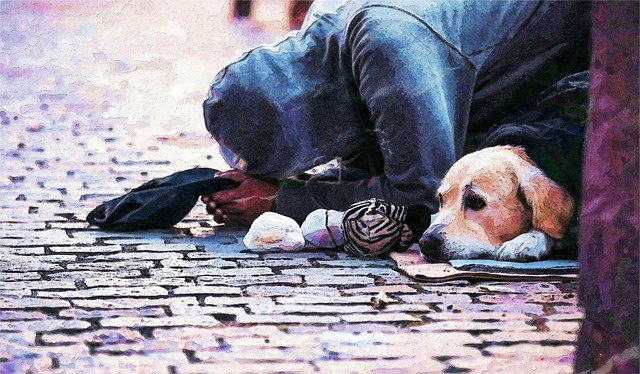Jijo Kandamkulathy, CMF
Claretian Publications, Macau
26TH SUNDAY – C
Lk 16:19-31
From last Sunday’s Gospel onwards, we are seeing Jesus apparently beginning a financial consultancy based on divine economics. He advises us on how to make use of wealth. Last week, he advised to use dishonest wealth to build relationships, and we concluded our reflection saying, “We should serve God and master money.” Today, he gives another principle of divine economics – unshared wealth is a liability in terms of entering the Kingdom of God. The parable of the rich man and Lazarus that we discuss this Sunday is about the judgment of God on the distribution of wealth in the world.
In no other parable did Jesus assign names to characters. But here, the poor person has a name: Lazarus. In this world, who has a name? To whom are the first pages of the newspapers dedicated? To the rich, to those who have success! For Jesus, the contrary is true. The rich man’s name remains unhighlighted, but the poor man’s name is given prominence; he is called Lazarus, which means “the Lord helps.”
The rich man, though condemned, does not know the reason why. He has not done anything evil. It does not say that he stole, did not pay taxes, ill-treated his servants, or blasphemed. Perhaps he was indifferent to the needs of others, not helping the poor, and so he committed a grave sin of omission. But this does not seem true since Lazarus was at his door and did not go somewhere else. It means that he was getting a few crumbs. The condition in which he was left was inhuman. He had to content himself with the crumbs with which the diners cleaned their fingers.
And the rich man? He lived his life revelling, dressing in the latest fashion, although always spending of his own (wealth). So according to the current trend of thinking and judging, he had impeccable moral behavior. We also have no proof to say that Lazarus was a good man. There is nothing in the story to prove that Lazarus was a just man, suffering like Job.
From these little details we understand that the parable is not giving an opinion on the moral behavior of the rich and the poor. It does not mean that whoever behaves well goes to heaven and who does evil goes to hell, because it is clear that the rich man was not necessarily a sinful person, and Lazarus is not shown to have done any good works.
For many, it seems logical and natural to distinguish between good rich people and evil rich ones. The conviction thus maintained is that inequalities will continue to exist in this world and that the super-rich can live next to the miserable, provided they do not steal and they give alms.
Jesus considers this way of thinking as dangerous. And this is the conviction that he wants to demolish. In the parable, he speaks of a rich man who was condemned, not because he was bad, but simply because he was rich, that is, he locked himself in his world and did not accept the logic of sharing of goods. Commenting on this parable, St. Ambrose said: “When you give something to the poor, you don’t offer him what is yours, you give back what is his, because the earth and the goods of this world are of all people, not of the rich.”
The last part of the parable (vv. 27-31) shifts the focus on the five brothers of the rich who continue to live in this world. They run the risk of ruining themselves by misusing the assets they have. They represent the disciples of the Christian communities who are tempted to attach their heart to wealth. How can they be diverted from the seduction it irresistibly exerts? The rich man has his own proposal. He repeats it insistently twice because he thinks it is the only way to achieve the goal; to cause the conversion of his five brothers, to bring them to repentance. He pleads that Father Abraham should convey miraculously through a vision or a dream a message from beyond the grave.
Abraham’s response to this trust in the persuasive ability of miracles is firm and clear: the only force capable of detaching the heart of the rich man from his goods is God’s word. ‘“Moses and the prophets” was the formula which in Jesus’ time represented all Sacred Scripture’? Only this Word can perform the miracle to let the rich into the realm of heaven. Yes, because it really calls for a miracle, a difficult miracle like letting a camel pass through the eye of a needle (Lk 18:25). Whoever does not let oneself be struck by the word of God is certainly resistant and not suggestible to any other argument.
(The textual analysis is borrowed from Fr. Fernando Armellini SCJ.)
(Image: vinsky2002@pixabay.com)


 Follow
Follow


